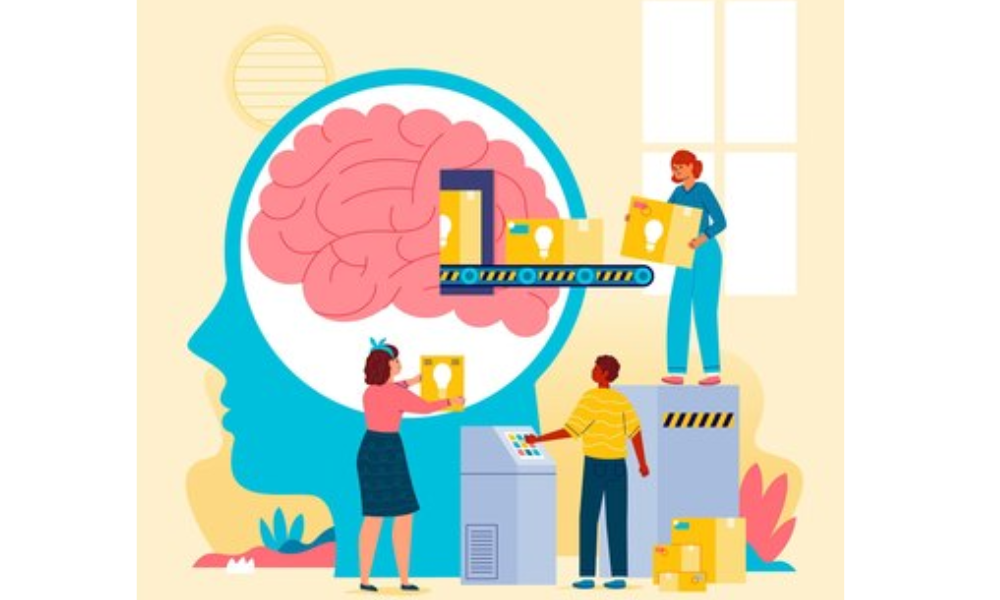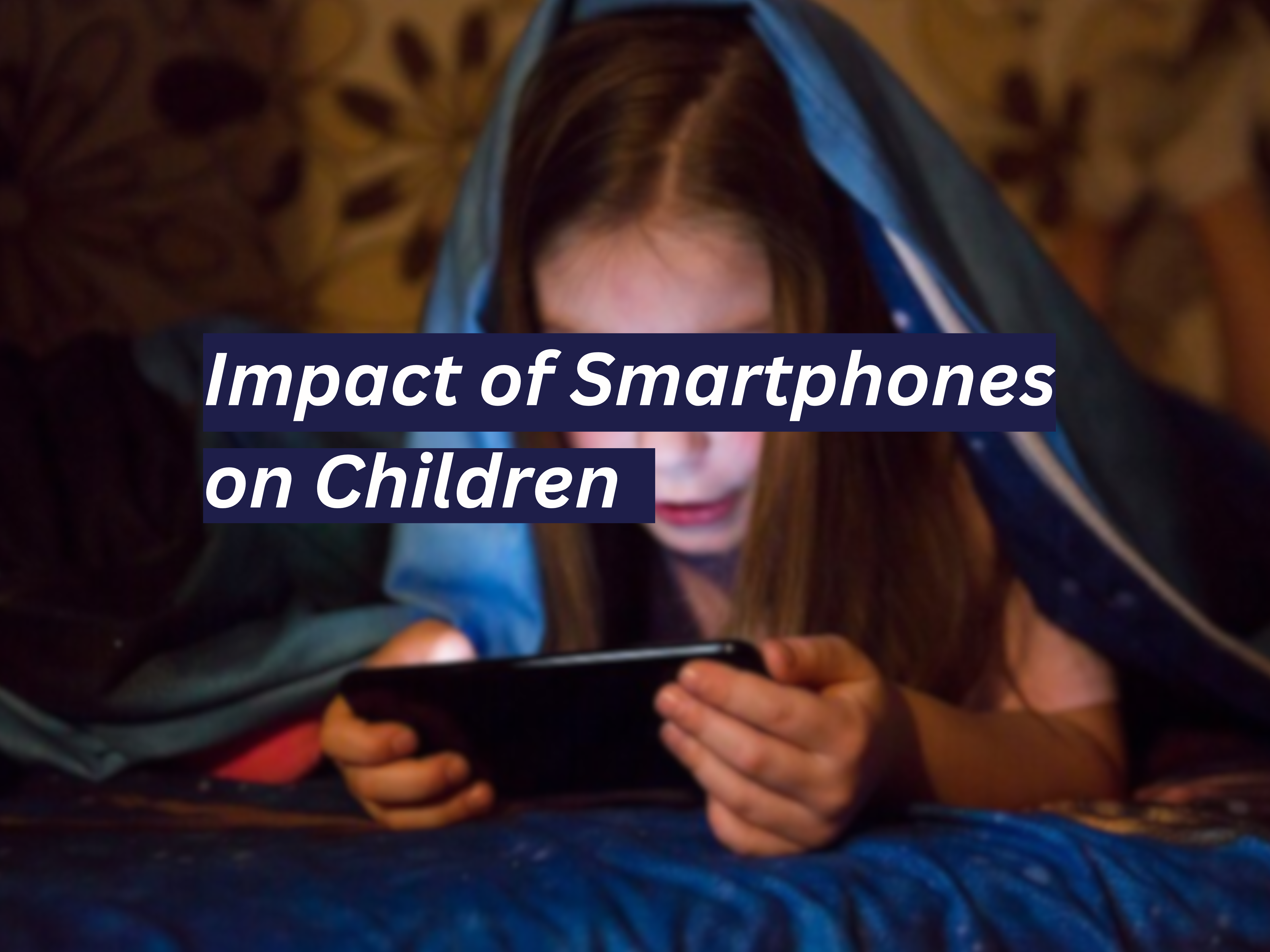Smartphones have become an integral part of our daily lives, including the lives of children. While these devices offer numerous benefits, their unsupervised use can lead to various negative effects.
Cognitive and Behavioral Effects of Using Smartphones

Distraction and Reduced Attention Span
- Reduced Focus: Continuous smartphone usage can distract children from studies and other productive activities, leading to a reduced attention span.
- Impact on Learning: Exposure to multiple stimuli from smartphones can hinder cognitive development and learning processes, causing children to struggle with concentration and retention of information.
Behavioral Issues
- Increased Aggression: Excessive screen time can contribute to increased aggression and irritability among children. The fast-paced and sometimes violent content found in games and videos can influence their behavior.
- Social Isolation: Dependency on smartphones can lead to social isolation and a lack of face-to-face interactions. Children might prefer virtual interactions over real-life connections, which can affect their social skills and emotional development.
Physical Health Implications

Sleep Disruption
- Sleep Patterns: The blue light emitted from screens can disrupt sleep patterns, leading to sleep deprivation and its associated problems. Children may have difficulty falling asleep or staying asleep.
- Quality of Sleep: Poor sleep quality can affect a child’s overall health, mood, and academic performance. Consistent lack of sleep can lead to chronic fatigue and other health issues.
Decreased Physical Activity
- Sedentary Lifestyle: Prolonged smartphone usage encourages a sedentary lifestyle, which can lead to obesity and other health issues. Children might spend more time indoors and less time engaging in physical activities.
- Outdoor Activities: Reduced time spent on physical activities can affect physical fitness and overall well-being. Children miss out on the benefits of outdoor play and exercise, which are crucial for their growth and development.
Mental Health Consequences

Anxiety and Depression
- Psychological Effects: Unmonitored smartphone use can contribute to anxiety, depression, and other mental health issues in children. The constant exposure to social media can lead to feelings of inadequacy and low self-esteem.
- Cyberbullying: The risk of exposure to cyberbullying can increase without parental oversight, impacting a child’s mental health. Negative online interactions can cause significant emotional distress.
Addiction
- Screen Addiction: Children can develop an addiction to smartphones, leading to compulsive behavior and dependence. This addiction can interfere with their daily lives and responsibilities.
- Digital Detox: It’s crucial for parents to encourage digital detox and set limits on screen time to prevent addiction. Regular breaks from screens can help children develop healthier habits.
Parental Guidance and Control

Setting Boundaries
- Screen Time Limits: Establishing clear boundaries for screen time can help manage a child’s smartphone usage effectively. Parents should set specific times for using devices and ensure these limits are adhered to.
- Educational Content: Encourage the use of educational and age-appropriate content to ensure productive use of smartphones. Parents should curate apps and content that promote learning and creativity.
Monitoring and Involvement
- Active Participation: Parents should actively participate in their child’s digital life, understanding what they are accessing and guiding them appropriately. This involvement helps in identifying potential risks and addressing them promptly.
- Safety Measures: Implementing parental controls and monitoring apps can help safeguard children from inappropriate content and online dangers. These tools can block harmful websites and limit the child’s exposure to risks.
Conclusion
Smartphones can offer educational and entertainment value to children, but their usage must be carefully monitored and guided by parents.
Without proper supervision, children may face cognitive, behavioral, physical, and mental health challenges.
It is imperative for parents to set boundaries, encourage healthy habits, and actively participate in their children’s digital activities to ensure a balanced and safe smartphone experience.
Frequently asked question
Q1: How can unsupervised smartphone usage affect a child’s attention span?
A1: Continuous use of smartphones can distract children from studies and other activities, leading to a reduced attention span and impaired cognitive development.
Q2: What behavioral issues can arise from excessive smartphone use in children?
A2: Excessive screen time can lead to increased aggression, irritability, and social isolation, affecting children’s behavior and emotional development.
Q3: How does smartphone use impact children’s sleep?
A3: The blue light from screens disrupts sleep patterns, causing difficulty in falling asleep and poor sleep quality, which can lead to health issues and chronic fatigue.
Q4: What are the physical health risks of prolonged smartphone use in children?
A4: Prolonged use promotes a sedentary lifestyle, leading to obesity and reduced physical activity, affecting overall health and well-being.
Q5: How can smartphone use affect a child’s mental health?
A5: Unmonitored use can lead to anxiety, depression, and low self-esteem due to social media pressures and the risk of cyberbullying.









